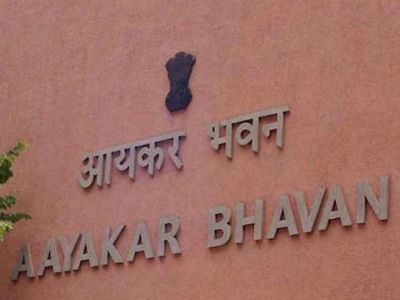![]()
Taxpayers who have not e-verified their ITRs for 2019-20 fiscal can complete the verification process by February 28, 2022, as the Income Tax department has given a one-time relaxation to assessees.
As per law, an income tax return (ITR), filed electronically without a digital signature, has to be verified electronically through Aadhaar OTP, or net-banking, or code sent through demat account, pre-validated bank account and ATM within 120 days of filing the return.
Alternatively, taxpayers can send a physical copy of the ITR filed to the Centralised Processing Centre (CPC) office in Bengaluru.
If the verification process, which is done through ITR-V form, is not complete, then it is considered that the return has not been filed.
The Central Board of Direct Taxes (CBDT) in a circular dated December 28, said a large number of electronically filed ITRs for the Assessment Year 2020-21, still remain pending with the Income Tax department for want of receipt of a valid ITR-V Form at CPC, Bengaluru or pending e-Verification from the taxpayers concerned.
“In respect of all lTRs for Assessment Year 2020-21 (fiscal 2019-20) which were uploaded electronically by the taxpayers within the time allowed… and which have remained incomplete due to non-submission of ITR-V Form… the Board… hereby permits verification of such returns either by sending a duly signed physical copy of ITR-V to CPC, Bengaluru through speed post or through EVC/OTP modes.
“Such verification process must be completed by February 28,2022,” the CBDT said.
This relaxation shall not apply in those cases, where during the intervening period, I-T department has already taken recourse to any other measure for ensuring filing of tax return by the taxpayer concerned after declaring that the return has not been filed, it added.
AMRG & Associates Senior Partner Rajat Mohan said “non-compliant taxpayers would get ample time to come clean and complete the verification process, enabling the tax department to process the returns.
“However, such non-compliant taxpayers would not be compensated for interest for the intervening period under section 244A, as the reasons for delay are attributable to the taxpayer himself.”
How useful was this post?
- Share review with rating here: Google Review
We are providing practical training (Labor Laws, Payroll, Salary Structure, PF-ESI Challan) and Labor Codes, Payroll Consultant Service & more:
- HR Generalist Practical Training + Certificate: https://oneclik.in/hr-generalist-practical-training/
- Labor Law + Payroll Practical Training + Certificate : https://oneclik.in/labor-law-payroll-practical-training-certificate/ (PF, ESI, Bonus, Payroll & more)
- HR Analytics Practical Training + Certificate: https://oneclik.in/hr-analytics-practical-training-certificate/
- Labor Code, 2020 (Crash Course) + Certificate: https://oneclik.in/labor-code2020-rules-practical-training-certificate-crash-course/
- Advance Excel Practical Training + Certificate: https://oneclik.in/advanced-excel-practical-training-certificate/
- Disciplinary Proceeding & Domestic Enquiry – Practical Training + Certificate: https://oneclik.in/disciplinary-proceeding-domestic-enquiry-short-term-course-with-latest-updates/
- PoSH Act, 2013 ( Sexual Harassment Of Women At Workplace & Vishaka Guidelines) – Practical Training + Certificate: https://oneclik.in/sexual-harassment-of-women-at-workplace-vishaka-guidelines-short-term-course-with-latest-amendments/
- Labour Code (2019 & 2020) With Latest Updates | Labour Bill (Labour-Law-Practical-Training): https://oneclik.in/labour-law-practical-training/ (Factory, Contact Labor, Maternity Act & more)
- PF – ESI Consultant Service: https://oneclik.in/pf-esi-consultant-service/
- Labor Law, Compliance & HR – Payroll Management
Get Latest HR, IR, Labor Law Updates, Case Studies & Regular Updates: (Join us on Social Media)
- Telegram Channel: “One Clik”
- Whatsapp Group: https://wa.me/919033016939
- Facebook: One Clik
- Linkedin: One Clik
- Instagram: oneclik_hr_management
- YouTube: One Clik
Disclaimer: All the information on this website/blog/post is published in good faith, fair use & for general informational purposes only and is not intended to constitute legal advice.

